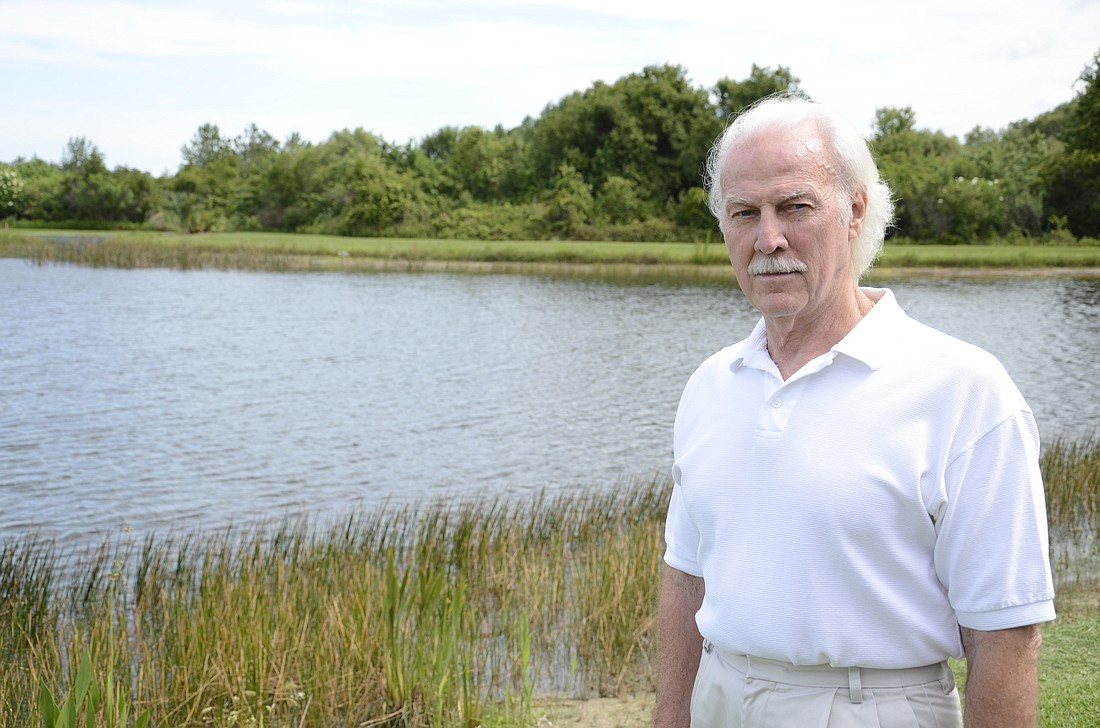- February 27, 2026
-
-
Loading

Loading

Ron Jarvis was born in Tampa and spent part of his adult life in California as president of Technicolor Motion Pictures. Now retired, the Lakewood Ranch Country Club resident has a passion for local wildlife, including alligators. Jarvis participated in Lakewood Ranch Town Hall meetings that led recently to the approval of an informal alligator-trapping policy.
Jarvis lives in harmony with a gator in the pond behind his home, whom he has nicknamed “Al.”
What piqued my interest in the gator situation was an incident on my street, in which an alligator had crossed from one pond going to another…For some strange reason, it upset (people), and there was a brief meeting of the neighborhood, and they decided to get rid of the alligator. I couldn’t believe this was happening — just because he had crossed from one side to another, they were going to call a trapper and have him killed. I don’t believe most people at that time knew that when you call in a trapper, the alligator is removed very inhumanely with a hook and a piece of meat and is killed.
I certainly believe the first step in a proper policy was to get control of the trappers, and I believe the Lakewood Ranch board has done a good job in trying to make that happen. I would prefer to employ an organization of trappers that would safely relocate the alligators instead of having them killed, and that as yet has not happened. The second part of the policy was before a trapper was called to do some sort of investigation whether the alligator should be removed. I don’t believe that because an alligator is on the golf course or in the pond or crossing the street that that deems it aggressive and a nuisance and that it should be removed. The homeowners who live in Lakewood Ranch received a copy of their covenants, conditions and restrictions, and in that document, it points out how to live in harmony with alligators and all wildlife, including cranes and deer. It seems to me we are not living up to that obligation.
When a complaint comes in about a certain alligator in a certain pond, by the time a trapper is called, the alligator may have moved on to a different pond, and an entirely different alligator has entered that pond. When you trap an alligator, you’re not even sure it’s the one you wanted to trap.
This situation is about alligators to a point, but it’s really about wildlife. Alligators are a part of the wildlife in LWR. We have deer, wild hogs, snakes, bobcats, hawks and eagles. It’s a marvelous area to live. Where else can you live in the sanctity of your home and view this wonderful assortment of wildlife? When a deer comes into your yard or a crane, some people would find that a nuisance. Would we remove those animals or kill them as we would an alligator? Seems to me, we don’t apply the same test of the law to the alligator as we do to other animals.
If I had my way, when areas are developed, a certain amount money would be put into an escrow account to remove the wildlife in that area if it becomes a problem rather than killing it.
Florida, for many years, was a desolate area with a lot of land. It’s not the wildlife’s fault they’ve been pushed out. I know development will continue, and proper development is not necessarily a bad thing, but I think we should consider what we are doing to the environment, and I consider the wildlife part of that. When Lakewood Ranch was developed, it provided area for wildlife — wetlands — and that was a marvelous thing. But...the wildlife can’t stay in the wetlands all the time. They have to move around, and when they get out, they are subject to some sort of harm.